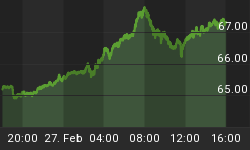Dry Powder is actually a term that I discovered a few days ago. And no - it does not actually have anything to do with powder. On the contrary, dry powder refers to the massive amount of Cash and/or Short term liquid assets that a company holds. By liquid assets - I mean those that are very easily and rapidly convertible to cash without losing much of their value. If we take a look at the corporate scene today - this actually makes a lot of sense. Companies are hoarding insane - sometimes obscene amounts of cash. Companies like Apple, Gilead, Google and so many others are holding onto tons of cash ( this is even after paying out dividends which comes out of profits)
So the question arises: Why are companies holding so much dry powder? It's not that nowadays companies are holding cash - they are holding OBSCENE amounts of cash which begs the questions why a corporation needs to hold cash in the 1st place.
One thing that a corporation always needs is a healthy working capital (WC). Working capital is just the current assets (anything under a year) minus the current liabilities. It is important that a company maintains a positive working capital so that they can meet all their short term debt obligations. While companies sometime venture into negative WC - which is alright, ensure that the situation is very short lived and does not become a trend. Companies also hold cash to pay dividends as dividends are paid out from the retained earnings and is not a deductible expense.
However besides the day-day cash and current assets requirement - why would a company hold cash?
If we take a look at a company like Apple which is holding onto billions - one of the reasons I believe they are doing this is to cement their position at the top of the corporate hierarchy. With a tremendous amount of assets and net income - it is almost impossible for a company to outright acquire them thus fending off any potential suitors. It also lets everyone know that Apple does have the cash for any sort of acquisition or merger opportunity as well as money to fund any research/development opportunity. Large companies with huge cash reserves may also be gearing up for a large acquisition. With many more M&A’s happening now then a few years ago and with low interest rates this may be the perfect opportunity for a company to grow albeit inorganically at a good price and with cheap financing. Just this year alone Kate Spade was acquired, Whole Foods, NXP semiconductors and many others.
Another interesting idea that companies have employed for many years is re-purchasing their own stock through share buybacks. This is something that stockholders also love because it shows the commitment that the management has for their business.
If we dial it up a notch - companies may also be building a massive war chest for future prospects. In the past we were more of a tangible society - companies invested a lot in machines and production lines to boost revenues - nowadays companies still spend but on ideas, knowledge and software which is much harder to value. How much of a value could you prescribe to the coding behind some of the major softwares or put a price on something like Microsoft Office? Companies don’t know when the next “internet” is coming and maybe they are accumulating cash to just get a piece of the pie when it's finished baking.
Finally - a word of caution, I would love to know the opportunity cost that companies take on when they decide to take on such large cash reserves. Remember the reason a dividend is not paid out is due to a higher rate of return that can be achieved by reinvesting retained earnings. If a dividend is being paid and the retained earnings are still growing year over year - is there anything more management should be doing?
By Ali Chattoo via What's In Stock?















